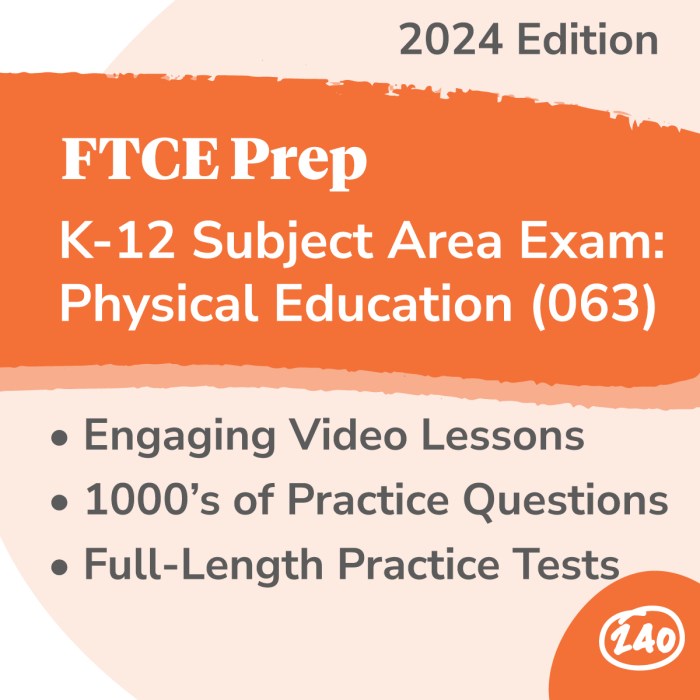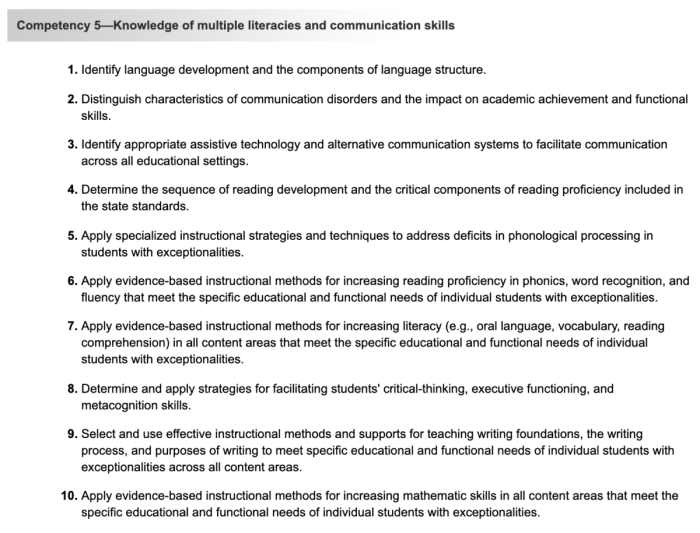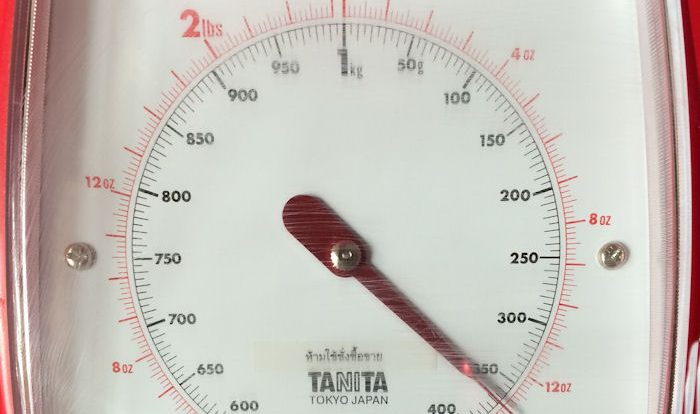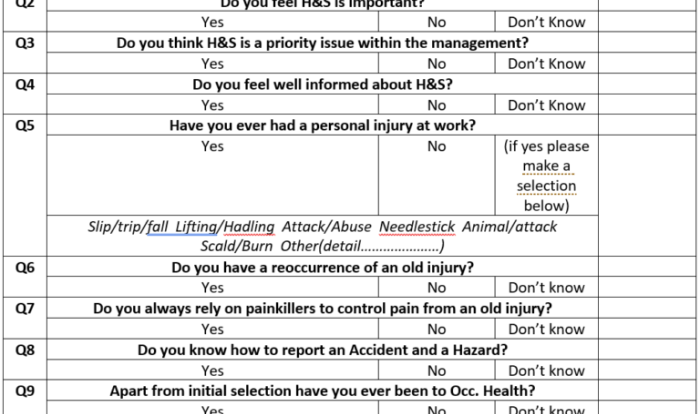Embark on a journey of preparation with the FTCE Physical Education practice test. Designed to empower you with knowledge and strategies, this invaluable resource provides a comprehensive overview of the test format, content areas, and essential test-taking techniques.
Delve into the intricacies of motor development, physical activity, sport skills, and assessment to gain a deep understanding of the subject matter. Master effective time management, question-answering strategies, and stress reduction tips to approach the actual test with confidence.
Practice Test Overview

The FTCE Physical Education practice test is an invaluable resource for individuals preparing to take the Florida Teacher Certification Examination (FTCE) in Physical Education. It offers a comprehensive review of the knowledge and skills necessary to excel on the actual exam.
The practice test comprises 120 multiple-choice questions, mirroring the format of the actual FTCE Physical Education exam. Candidates are allotted 2 hours and 30 minutes to complete the test, providing ample time to demonstrate their understanding of the subject matter.
Content Areas Covered
The FTCE Physical Education practice test encompasses a wide range of content areas, ensuring thorough preparation for the actual exam. These areas include:
- Foundations of Physical Education
- Motor Learning and Development
- Exercise Physiology and Fitness
- Teaching Strategies and Curriculum Development
- Sports Medicine and First Aid
- Legal and Ethical Issues
li>Assessment and Evaluation
Content Areas Assessed

The FTCE Physical Education practice test covers a comprehensive range of content areas that are essential for aspiring physical educators to master. These areas encompass the core knowledge and skills required for effective teaching and facilitation of physical activity and sports.
The test delves into various aspects of physical education, ensuring that candidates possess a solid understanding of the field’s fundamental principles and best practices.
Motor Development and Learning, Ftce physical education practice test
This content area explores the stages and processes of motor development from infancy to adulthood. Candidates are expected to demonstrate an understanding of how children and adolescents acquire and refine motor skills, including the factors that influence motor learning and performance.
- Principles and theories of motor development
- Stages and characteristics of motor development
- Factors influencing motor learning
- Strategies for promoting motor skill acquisition
- Assessment and evaluation of motor skills
Physical Activity and Fitness
This area focuses on the significance of physical activity and fitness in promoting overall health and well-being. Candidates must be knowledgeable about the components of physical fitness, the benefits of regular exercise, and the guidelines for developing and implementing effective physical activity programs.
- Components of physical fitness
- Benefits of physical activity and exercise
- Principles of exercise prescription
- Guidelines for physical activity for different populations
- Assessment and evaluation of physical fitness
Sport Skills and Tactics
This content area examines the fundamental skills, strategies, and tactics involved in various sports and physical activities. Candidates are expected to demonstrate proficiency in analyzing and teaching sport-specific techniques, as well as the ability to develop and implement effective practice drills and game plans.
- Basic skills and techniques in different sports
- Strategies and tactics for team and individual sports
- Principles of coaching and instruction
- Developing and implementing practice plans
- Game management and officiating
Assessment and Evaluation
This area emphasizes the importance of assessment and evaluation in physical education. Candidates must be proficient in selecting and administering appropriate assessment tools, interpreting results, and using data to inform instruction and improve student learning.
- Principles and methods of assessment in physical education
- Types of assessment tools and their applications
- Interpreting and using assessment data
- Developing and implementing grading rubrics
- Using assessment to improve instruction
Test-Taking Strategies

Adequately preparing for and taking the FTCE Physical Education practice test is essential for success. By employing effective strategies, test-takers can optimize their performance and increase their chances of achieving a desirable score.
This section provides a comprehensive overview of test-taking strategies, encompassing time management techniques, question-answering approaches, and stress reduction tips. By implementing these strategies, test-takers can enhance their confidence, reduce anxiety, and maximize their potential during the examination.
Time Management Techniques
Effective time management is crucial for completing the FTCE Physical Education practice test within the allotted time frame. Test-takers should allocate their time wisely, ensuring they dedicate an appropriate amount to each section and question.
- Prioritize Questions:Determine the value of each question and allocate more time to those carrying higher weightage.
- Pace Yourself:Monitor the time and adjust the pace accordingly. Avoid spending excessive time on any single question.
- Utilize Scratch Paper:Use scratch paper for calculations or jotting down key concepts to save time.
Question-Answering Strategies
Approaching questions strategically can significantly improve performance on the FTCE Physical Education practice test. Test-takers should adopt a systematic approach to question-answering, employing techniques that enhance accuracy and efficiency.
- Read Carefully:Read each question thoroughly to fully understand its intent and avoid misinterpretation.
- Eliminate Incorrect Options:If possible, eliminate options that are clearly incorrect, narrowing down the choices.
- Guess Educatedly:If unsure about the answer, make an educated guess based on the available information.
Stress Reduction Tips
Managing stress during the FTCE Physical Education practice test is essential for maintaining focus and performing optimally. Test-takers should employ relaxation techniques and adopt a positive mindset to mitigate anxiety.
- Practice Relaxation Techniques:Engage in deep breathing exercises or visualization techniques to calm nerves.
- Stay Positive:Maintain a positive attitude and focus on the task at hand. Avoid dwelling on negative thoughts.
- Visualize Success:Picture yourself successfully completing the test and achieving a desirable score.
Practice Questions and Answers
To provide a comprehensive review of the FTCE Physical Education exam, let’s delve into a sample set of practice questions that cover various content areas. Each question will be accompanied by a detailed explanation of the correct answer, offering valuable insights into the exam’s format and the key concepts tested.
Health-Related Fitness
Health-related fitness is a crucial aspect of physical education. Here are a few practice questions to assess your understanding of this area:
- Question:Which of the following is NOT a component of health-related fitness? Answer:D. Speed Explanation:Health-related fitness focuses on components that enhance overall well-being and reduce the risk of chronic diseases. Speed, while important for certain activities, does not fall under this category.
- Question:A student has a resting heart rate of 72 beats per minute (bpm). After 12 minutes of moderate-intensity exercise, their heart rate increases to 144 bpm. What is their heart rate reserve (HRR)? Answer:72 bpm Explanation:HRR = Maximum heart rate (HRmax)
- Resting heart rate (RHR).
Assuming the student’s HRmax is 216 bpm (220
- age), the HRR would be 216
- 72 = 72 bpm.
- Resting heart rate (RHR).
Skill-Related Fitness
Skill-related fitness is essential for physical performance. Test your knowledge with these practice questions:
- Question:Which of the following is a skill-related fitness component? Answer:A. Reaction time Explanation:Skill-related fitness components enhance performance in specific sports or activities. Reaction time, which is the ability to respond quickly to stimuli, falls under this category.
- Question:A basketball player needs to jump high to block an opponent’s shot. Which skill-related fitness component is primarily responsible for this action? Answer:B. Power Explanation:Power is the ability to generate force quickly. It is essential for explosive movements like jumping high.
Pedagogical Knowledge
Pedagogical knowledge is crucial for effective physical education instruction. Here are some questions to assess your understanding:
- Question:Which of the following is a key principle of student-centered learning in physical education? Answer:A. Students have ownership of their learning. Explanation:Student-centered learning empowers students by giving them control over their learning experiences.
- Question:A physical education teacher wants to create a lesson plan that incorporates differentiated instruction. What is the primary purpose of differentiation? Answer:C. To meet the diverse needs of students. Explanation:Differentiation aims to tailor instruction to individual student needs, ensuring that all learners have access to meaningful learning opportunities.
Assessment and Measurement
Assessment and measurement are essential for evaluating student progress and improving instruction. Test your knowledge with these practice questions:
- Question:Which of the following is a formative assessment technique? Answer:A. Quizzes Explanation:Formative assessments provide feedback during the learning process to identify areas for improvement.
- Question:A physical education teacher wants to assess students’ cardiovascular endurance. Which of the following field tests is most appropriate? Answer:D. Mile run Explanation:The mile run is a commonly used field test to measure cardiovascular endurance, which is the ability of the heart and lungs to deliver oxygen to the body.
Score Interpretation
Interpreting your FTCE Physical Education practice test scores is crucial for assessing your readiness for the actual exam. The test results provide valuable insights into your strengths and weaknesses, enabling you to tailor your preparation strategy accordingly.
Determining a Good Score
A good score on the FTCE Physical Education practice test is typically considered to be in the range of 65% to 80%. This range indicates a strong understanding of the concepts and skills tested on the exam and a high likelihood of success on the actual assessment.
Improving Performance
If your practice test score falls below the desired range, it is essential to identify areas for improvement. Carefully review the questions you answered incorrectly and analyze the concepts or skills that you struggled with. Consider seeking additional support from textbooks, online resources, or a tutor to reinforce these areas.
Using Practice Test Results
The practice test results can be used to develop a targeted study plan. Focus on reviewing the content areas where you performed poorly. Utilize additional practice questions, study materials, and mock exams to enhance your understanding and improve your performance.
Additional Resources

To enhance your preparation for the FTCE Physical Education test, explore the following resources:
These resources provide comprehensive materials and support to assist you in your studies and improve your chances of success on the exam.
Study Guides
- FTCE Physical Education Study Guide by Mometrix: A comprehensive study guide with practice questions, detailed explanations, and expert insights.
- FTCE Physical Education Certification Exam Secrets Study Guide by Mometrix: A comprehensive guide covering all tested concepts with practice questions and detailed answer explanations.
- FTCE Physical Education Exam Study Guide by Test Prep Books: A comprehensive study guide with practice questions, answer explanations, and test-taking strategies.
Online Courses
- FTCE Physical Education Exam Prep Course by Study.com: A comprehensive online course with video lessons, practice questions, and expert guidance.
- FTCE Physical Education Certification Exam Course by Mometrix: An online course with video lessons, practice questions, and personalized feedback.
- FTCE Physical Education Exam Preparation Course by Exam Edge: An online course with video lessons, practice questions, and study materials.
Practice Tests
- FTCE Physical Education Practice Tests by Peterson’s: A set of practice tests with answer explanations to simulate the actual exam experience.
- FTCE Physical Education Practice Questions by Mometrix: A collection of practice questions with detailed answer explanations to assess your understanding of tested concepts.
- FTCE Physical Education Exam Practice Test by Test Prep Books: A practice test with answer explanations to help you identify areas for improvement.
Commonly Asked Questions: Ftce Physical Education Practice Test
What is the purpose of the FTCE Physical Education practice test?
The FTCE Physical Education practice test provides an opportunity to familiarize yourself with the test format, content areas, and question types, helping you identify areas for improvement and enhance your preparation.
How many questions are on the FTCE Physical Education practice test?
The number of questions on the FTCE Physical Education practice test may vary, but it typically consists of around 100 multiple-choice questions.
What content areas are covered on the FTCE Physical Education practice test?
The FTCE Physical Education practice test covers various content areas, including motor development, physical activity and fitness, sport skills and tactics, and assessment and evaluation.
How can I access the FTCE Physical Education practice test?
The FTCE Physical Education practice test can be accessed online through various educational platforms and the official FTCE website.
Is the FTCE Physical Education practice test timed?
Yes, the FTCE Physical Education practice test is typically timed to simulate the actual testing conditions.

